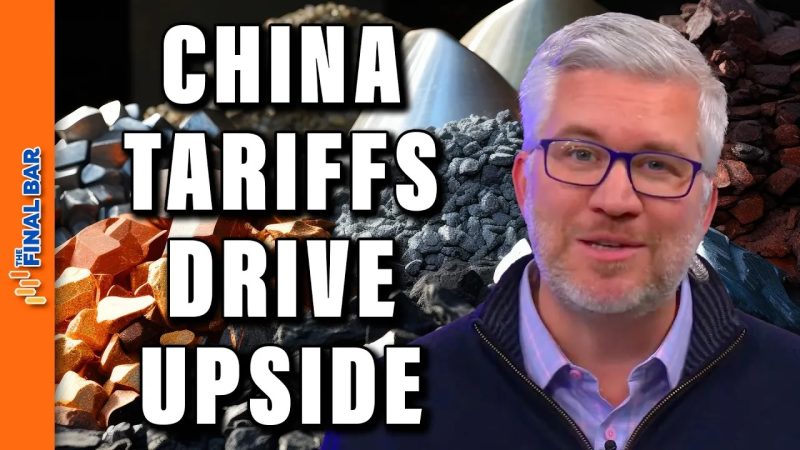The escalating trade tensions between the United States and China have brought rare earth minerals into the spotlight as a key strategic resource. Rare earth minerals play a vital role in the production of high-tech products, from smartphones and electric vehicles to military equipment. China’s dominant position in the global rare earth market has given rise to concerns about the potential implications of tariffs and trade restrictions.
The imposition of tariffs on Chinese rare earth minerals by the United States has led to increased volatility in the market. While tariffs are typically intended to protect domestic industries, they can have unintended consequences that impact global supply chains and prices. In the case of rare earth minerals, tariffs have the potential to disrupt the flow of these critical materials, leading to shortages and price spikes.
One of the main drivers behind the upside potential for rare earth minerals is their essential role in a wide range of modern technologies. With the increasing demand for electric vehicles, renewable energy systems, and other high-tech applications, the demand for rare earth minerals is expected to continue rising in the coming years. This growing demand presents an opportunity for rare earth producers to capitalize on higher prices and expand their market share.
In response to the tariffs imposed by the United States, China has signaled its willingness to consider using rare earth minerals as a bargaining chip in the trade war. Given China’s dominant position in the global rare earth market, any restrictions on the export of these critical minerals could have far-reaching consequences for industries around the world. This uncertainty has prompted companies to explore alternative sources of rare earth minerals and develop strategies to mitigate potential disruptions to their supply chains.
The geopolitical implications of the trade tensions surrounding rare earth minerals are significant. As countries seek to secure stable access to these critical resources, we are likely to see increased competition and strategic alliances forming in the global rare earth market. The outcome of these developments will not only have economic implications but also geopolitical consequences that could shape the balance of power in key industries.
In conclusion, while the trade tensions between the United States and China have created challenges for the rare earth market, they have also opened up opportunities for producers and consumers alike. As the demand for high-tech products continues to grow, rare earth minerals will play an increasingly important role in shaping the future of various industries. It is crucial for companies to adapt to the changing dynamics of the rare earth market and prepare for potential disruptions to ensure a stable supply of these critical resources.
